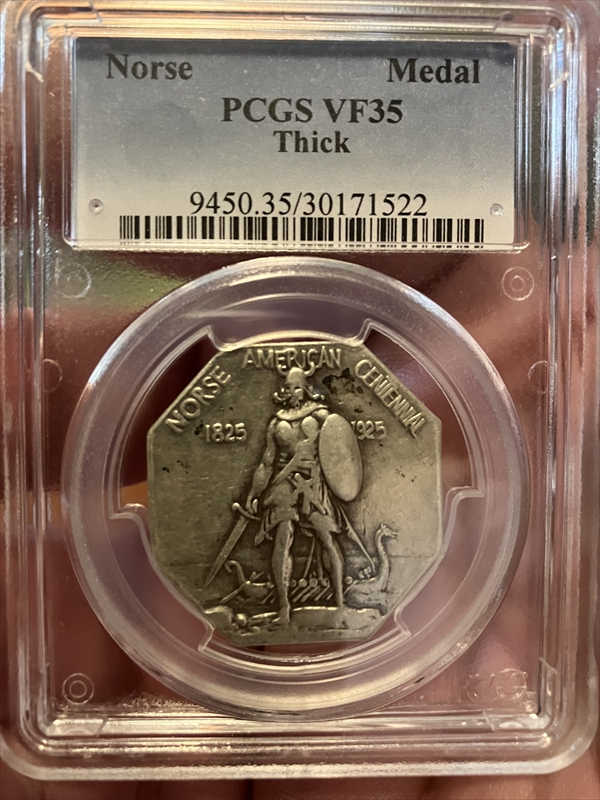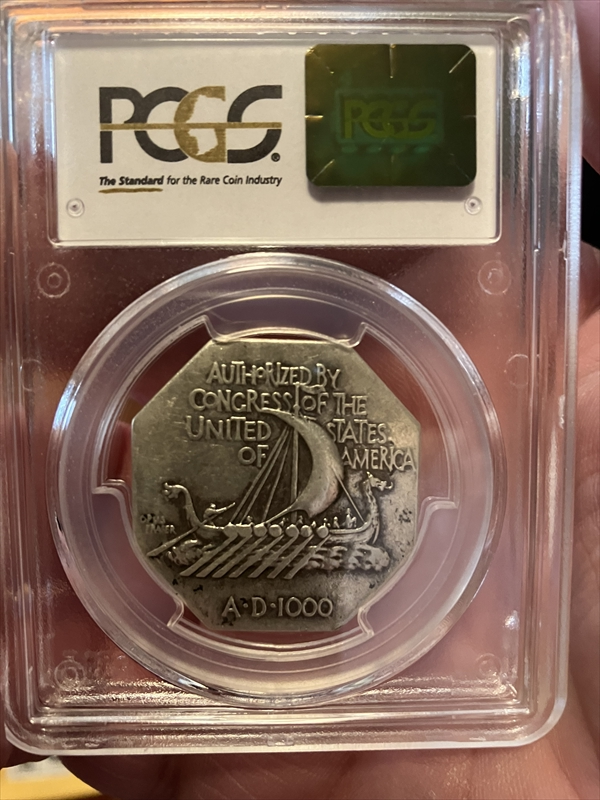1925 AR Medal Norse American, Thick VF35 认证号30171522, PCGS号9450
专家评论
Ron Guth
The 1925 Norse-American Medal commemorated the 100th anniversary of the arrival of the Norwegian ship Restauration in America. The Restauration carried Norwegian immigrants, many of whom settled in Minnesota and became important contributors to society there. Minnesota Congressman, Ole J. Kvale, championed the medals, using his influence as a member of the Congressional Coin, Weights, and Measures Committee. Originally, Kvale envisioned a commemorative half dollar for the celebration, but Congress had already authorized four commemorative coins earlier in the year, and Kvale sought an option that was more likely to be approved -- a commemorative medal.
In 1925, the Philadelphia Mint struck 33,750 silver medals on thick planchets, 6,000 silver medals on this planchets, and 100 medals in gold. The silver medals bore a brilliant finish; the gold medals bore a matte (or sandblast) finish.
Though not a pure part of the U.S. commemorative coin series, the Norse-American medals appeal to both coin and medal collectors. The unusual, octagonal shape of the Norse-American medal appeal to collectors, who are reminded of the 1915 Panama-Pacific $50 Octagonal gold coins, the octagonal, $50 gold "Slugs" issued in California after the Gold Rush, and even some of the octagonal, fractional gold coins issued privately from the 1850s to the 1880s.























